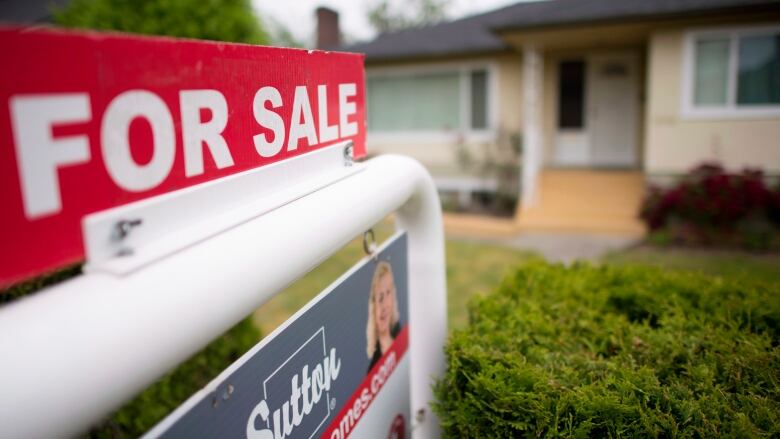Land transfer tax not the solution for Alberta's fiscal woes, Calgary economist says
Taxes on property transactions add billions to provincial coffers in Ontario and B.C.

If Alberta wants to raise more tax revenuealand transfer tax is not the solution, according to a new report from the University of Calgary's School of Public Policy.
Instead, a sales tax or raising property taxes would be better options, the report's authors say.
Land transfer taxes, which are paid when someone acquires property,generated $2.7 billion in Ontario and $2 billion in B.C. in 2017.
Alberta doesn't have a land transfer tax, but it does have a$7.5-billion deficit.
The study's co-author BevDahlbysaid he was looking at what taxes Alberta doesn't levy that raise significant revenue for other provinces: provincial sales taxes, which he's assessed in other studies, and land transfer taxes.
Dahlbysaid a one per cent land transfer tax in Alberta could raise$500 million to $1.5 billion per year,but the economic cost on middle-income families wouldn't be worth it.
In 2015,a one-per-cent land transfer tax could be equal tosix- to seven-per cent of median household income in Edmonton and Calgary.
"We think that it's not an appropriate tax. It may be in some jurisdictions politically popular because it's sort of sometimes sold off the tax on real estate speculators, but really it hits most homeowners at some point when they need to or want to change their residence," Dahlby said.
He said the evidence shows that land transfer taxes discourage residential property transactions and are too volatile a source of revenue to be relied on.
"The problem is it would be go up and go down at about the same time that our resource revenues go up and go down," he said.
Dahlby said he's not aware of any Alberta political parties advocating for a land transfer tax.
"In our view, if the Alberta government feels the need to increase its tax revenues to deal with the province's fiscal situation, other new revenue sources should be considered, such as a provincial sales tax, which has a relatively low marginal cost of public funds," the report concludes.
With files from Elizabeth Snaddon












_(720p).jpg)


 OFFICIAL HD MUSIC VIDEO.jpg)
.jpg)



























































































